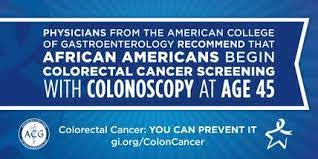The August 28 death of actor Chadwick Boseman saddened the nation and the entertainment world and conjured up images of his groundbreaking role as Black Panther in one of
the highest grossing films in the United States of 2018. Boseman’s death from colon cancer at 43 also provided a useful, if
grim, reminder of the impact of the disease on African Americans and the need
for effective counter measures in that population.
Boseman notoriously guarded his privacy, so he never told the world he’d been diagnosed with the disease in 2016. He kept acting, enjoying his Black Panther success while undergoing treatment.
A Short, Spectacular Career
Boseman grew up in Anderson, South Carolina, the son of a nurse and a textile
worker. He earned a fine arts degree from
Howard University in 2000 and began a career focused on writing and directing. He only started studying acting because he hoped doing so would give him a better understanding of actors in his directing work. Though he kept writing plays, Boseman soon found success as an actor in television, beginning in 2003 with appearances in Third Watch and later in Law and Order, CSI:NY, and ER.
Boseman made his real mark in movies.
In 2013, he played Jackie Robinson in 42, a movie that grossed $97 million against a budget of
$40 million. Ironically, Boseman died on Jackie Robinson Day, the major league baseball players wear
budget of
$40 million. Ironically, Boseman died on Jackie Robinson Day, the major league baseball players wear
The Cultural Phenomenon of Black Panther
It’s difficult to overestimate the impact of Boseman’s work in Black Panther. Our March 8, 2018, post recorded our reactions to the film, reactions that demonstrated our individual approaches to entertainment, cultural phenomena, and racial issues. Woodson juxtaposed the film’s “confident and competent” depiction of people of color with the harsh portrayal presented by the current President of the United States. Rob viewed the picture in the context of other action movie franchises. Henry, a long time Super Hero fan, discovered a movie that forged a spiritual connection with a world he’d longed for, but wasn’t sure he’d ever inhabit.
In tribute to the actor, Henry wrote, “I found immensely satisfying seeing a movie, in a genre in which I’ve reveled so long, depict a world that left no question of my own humanity and celebrated the notion people of African descent can be, and are, good or bad, human or inhuman, smart or not-so-smart, wise or unwise, compassionate or cruel.” He continued, “Black Panther brought alive my own spirit and helped maintain a faith in humanity that’s been challenged in the last few years.”
For African Americans like Henry, who have worshiped in the
Super Hero movie world for years, Bozeman’s performance provided hope. Death, rebirth, and courage brought
the mythical hero to the hearts of people longing for a symbol rising above the
reality of past bondage and continued oppression. Boseman, in the Black Panther role and in his portrayals
of famous men, important men like Robinson, Brown, and
Marshall, showed America people of color who altered history. They changed
whispers to roars and helped move myth to reality. In tribute, Woodson
observed, “Chadwick Boseman’s life and death expressed the urgency of now –
embracing life’s calling and pursuing it to the end.”
of color who altered history. They changed
whispers to roars and helped move myth to reality. In tribute, Woodson
observed, “Chadwick Boseman’s life and death expressed the urgency of now –
embracing life’s calling and pursuing it to the end.”
As one of Henry’s grandchildren expressed it, “Black Panther is the baddest Super Hero ever.” In spite of Boseman’s enormous achievements by age 43, one can only imagine what his contributions might have been had he lived a normal life expectancy. Perhaps the fitting thing we should say now is, “Chadwick Boseman, forever.”
A Dark Side and a Reality Check
Boseman’s life has been celebrated by celebrities and ordinary people for good reason. His death, however, conjured up harsh realities the nation ignores at its peril. He died of colon cancer as a young man. That fact creates a sobering circumstance that requires closer examination.
Blacks suffer from colon cancer at significantly
The explanations don’t differ much from the
Even that might not have changed the outcome for Chadwick Boseman. He was 39 at the time of his diagnosis. A lower initial screening age might not have caught his disease early enough to have started treatment that would have extended his life beyond the 43 years he got. Outliers often exist and he apparently was one. Still, Boseman’s case, and his tragic death, remind the nation generally, and the African American population specifically, of the need for early testing and overall vigilance about a disease that can create such havoc.
Getting an early colon cancer screening is something we whole heartedly recommend.






This was a beautiful tribute. I enjoyed reading it.
ReplyDeleteA fine actor. Too soon.
ReplyDelete